Lusophony Games

The Lusophony Games (Portuguese: Jogos da Lusofonia) is a multinational multi-sport event organized by the ACOLOP, which involves athletes coming from Lusophone (Portuguese-speaking) countries, most countries competing are countries that are members of the CPLP (Community of Portuguese Language Countries), but some are countries with significant Portuguese communities or have a history with Portugal
Participating countries are founding members Angola, Brazil, Cape Verde, East Timor, Guinea-Bissau, Macau (Chinese SAR), Mozambique, Portugal and São Tomé and Príncipe, and associate members Equatorial Guinea, India and Sri Lanka. In addition, Ghana, Flores (an island of Indonesia), Mauritius and Morocco have also expressed the desire to participate in future events.[1]
This event is similar in concept to the Commonwealth Games (for members of the Commonwealth of Nations) and the Jeux de la Francophonie (for the Francophonie community).
Editions
| Year | Edition | Date | Host city | Athletes (nations) |
|---|---|---|---|---|
| 2006 | I | 7–15 October | 733 (11) | |
| 2009 | II | 11–19 July | 1300 (12) | |
| 2014 | III | 18–29 January | 7000 (12) | |
| 2017 | IV | tbd | tbd | |
| 2021 | V | tbd | tbd | |
| tbd - to be determined | ||||
Inaugural edition

The 1st Lusophony Games were hosted by Macau, from 7 to 15 October 2006, comprising 733 athletes from 11 countries (Equatorial Guinea didn't field any athletes), some of which are international sports stars.
In competition were a total of 48 events distributed between 8 sports: athletics, basketball, beach volleyball, football, futsal, table tennis, taekwondo, volleyball. Portugal and Brazil were the top medal collectors of the Games, managing to grab 85% of the titles. And the two countries acquired 71% of the total medals of the Games. All delegations managed to win medals.
List of countries/territories
Countries/territories that have participated
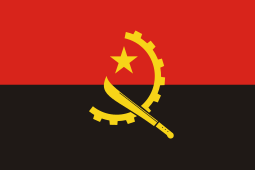 Angola 2006
Angola 2006 Brazil 2006
Brazil 2006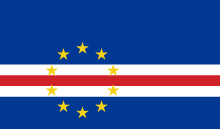 Cape Verde 2006
Cape Verde 2006 East Timor 2006
East Timor 2006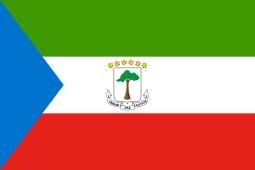 Equatorial Guinea 2009
Equatorial Guinea 2009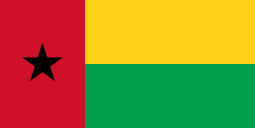 Guinea-Bissau 2006
Guinea-Bissau 2006 Goa, India 2006
Goa, India 2006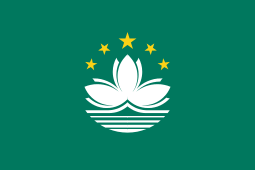 Macau, China 2006
Macau, China 2006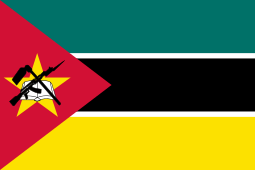 Mozambique 2006
Mozambique 2006 Portugal 2006
Portugal 2006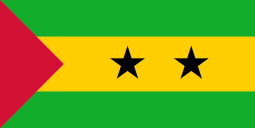 São Tomé and Príncipe 2006
São Tomé and Príncipe 2006 Sri Lanka 2006
Sri Lanka 2006
All-time medal table
| Pos | Country | |
|
|
Total |
| 1 | |
64 | 43 | 32 | 139 |
| 2 | |
55 | 72 | 48 | 175 |
| 3 | |
38 | 29 | 35 | 102 |
| 4 | |
16 | 15 | 33 | 64 |
| 5 | |
10 | 13 | 18 | 41 |
| 6 | |
9 | 12 | 25 | 46 |
| 7 | |
8 | 7 | 10 | 25 |
| 8 | |
3 | 8 | 16 | 27 |
| 9 | |
2 | 1 | 1 | 4 |
| 9 | |
1 | 3 | 7 | 11 |
| 11 | |
0 | 0 | 2 | 2 |
| 12 | |
0 | 0 | 0 | 0 |
| Total | 206 | 203 | 227 | 636 | |
|---|---|---|---|---|---|
Sports
So far there are not any regulations concerning the list of sports that should be included in the Games schedule. The sports chosen for the 1st edition were discussed and deliberated by the ACOLOP's members on general assembly, but without any principle of future 'core' and 'rotating' sports from a list of approved ones.
However, on 14 October 2006, the president of the organizing committee for the 2009 Lusophony Games, José Vicente de Moura, mentioned the possibility of the ACOLOP proposing four or five core sports to be included on every future edition, plus the prerogative for the host country to propose three of four more to a maximum of nine sports. In 2009 edition (Lisbon) 1500 athletes participated from 12 countries. In the football tournament five U-20 national teams competed.[4] The sport marked with an asterisk (*) means that it has a demonstration event.
- Athletics (2006-)
- Basketball (2006-)
- Beach Volleyball (2006-)
- Disabled athletics (2009-)*
- Football men (2006-)
- Futsal men (2006-2009)
- Judo (2009-)
- Taekwondo (men: 2006-, women: 2009-)
- Table Tennis (2006-)
- Wushu (2014-)
- Volleyball (2006-)
See also
References
- ↑ "Jogos da Lusofonia - Portugal e Índia são valor acrescentado" (in Portuguese). A União - Jornal Online.
- ↑ "Lusofonia Games postponed on account of incomplete infrastructure". The Hindu. 23 September 2013. Retrieved 12 November 2013.
- ↑ http://lusofoniagames2014.gov.in/common/mt_med_main.htm
- ↑ "Lisboa 2009 Football tournament" (in Spanish). Periodismo de fútbol internacional.